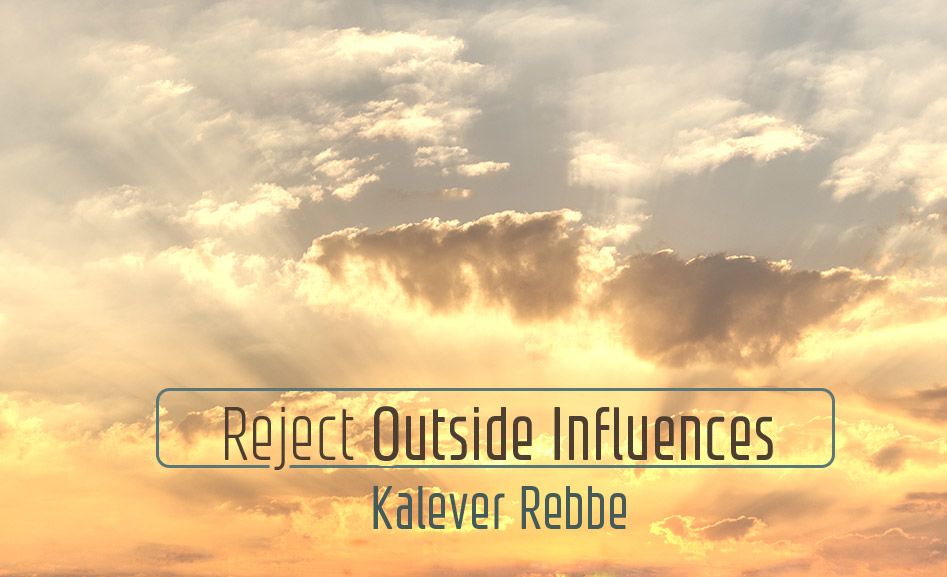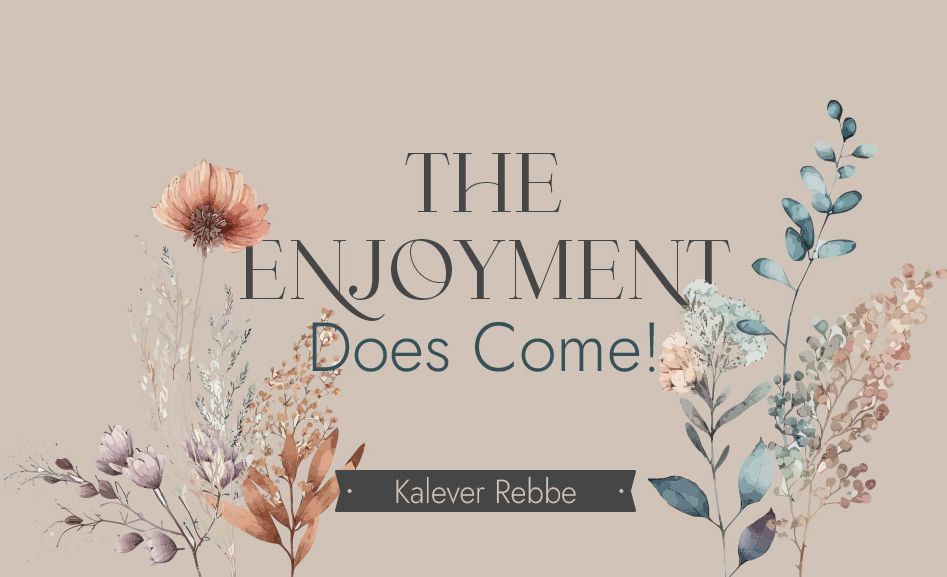
Shmita and Trust
If I don't have air conditioning, does it means that I am not supposed to have air conditioning? If I only have one nice dress for Yom Tov...

A friend’s son, let's call him Daniel, lives in a small village somewhere in Israel. Daniel sits and learns Torah all day. His wife takes care of the family.
As you can imagine, Daniel is far from being wealthy. Putting food on the table is a daily challenge.
One Friday afternoon, Daniel's wife Ruchama (another pseudonym) was feeling sorry for herself. Instead of serving gefilte fish at the Shabbat meals, she would have to make do with a measly sardine for each of the family members and guests.
In the small village where Daniel and his wife live, the women take turns cooking meals for the small yeshiva there. It was Ruchama's turn to prepare the boys' simple Friday afternoon lunch. When Ruchama arrived at the yeshiva, the Rosh Yeshiva's wife was carrying a big box from the back of her car to the freezer. "Look what someone just donated," she said. "A fifty pound container of salmon. Would you like some for Shabbat?"
Another time, Daniel was on his way home to repair the fan that made life in the ninety-degree heat somewhat bearable when the Rosh Yeshiva came over to him. "This man wants to give something to one the yeshiva families,” he said. “What can he do to help you?" "I have everything I need," replied Daniel. "Maybe he knows how to fix my fan." Instead of fixing Daniel's fan, the man purchased an air conditioning unit for Daniel and Ruchama's small trailer-home.
Anyone who lives in Eretz Yisrael can tell you innumerable stories of hashgachat pratit – Divine Providence. All of us who live here have experienced times when it seemed as if all was lost, and then someone appeared, like a redeeming angel, to provide exactly what we needed. I recall one time when we did not have money to purchase food for Shabbat. Thursday afternoon a stranger appeared at my door. "I've been looking for you guys for the last two weeks," he said, and handed me a hundred dollar bill – a small fortune twenty-five years ago. "I borrowed this from your husband over twenty years ago, when we were in yeshiva together. I'm slowly paying off all my debts. It's your turn."
This year, 5782 is a Shmita year. What is Shmita? The Torah states, "God spoke to Moses at Mount Sinai… when [the Jews] come to the land… six years [they] may plant… and harvest… but the seventh year is a Shabbat… for the land… do not plant… or prune… or harvest. [Whatever grows] you may eat…" (Vayikra 25:1-6)
Every seven years, we are required to leave the land fallow. During the seventh year, we are not allowed to work the land of Eretz Yisrael. How could an agriculturally based society survive an entire year without working the land? The Torah continues, "You shall perform My statutes, keep my ordinances and perform them, then you will live on the land securely. And the land will then yield its fruit and you will eat to satiety, and live upon it securely. And if you should say, 'What will we eat in the seventh year? We will not sow, and we will not gather in our produce!' [Know then, that] I will command My blessing for you in the sixth year, and it will yield produce for three years." (Vayikra 25:18-21)
Hashem is promising us that if we keep His mitzvah of Shmita, He will provide for us. Every Shmita, there are incredible stories of how Hashem provided for those farmers who endangered their livelihood to leave their fields fallow. When we trust in Hashem, Hashem provides for us, and since we know that Hashem provides for us, we are happy with what we have. We know beyond the shadow of a doubt that whatever we have is exactly what we need!
I can almost hear the questions forming in the reader’s mind: If we have whatever we need, why should we try to raise our standard of living? If I don't have air conditioning, does it mean that I am not supposed to have air conditioning? If I only have one nice dress for Yom Tov, then I shouldn't buy another?
The answer is Yes . . . and No. Yes, if we feel that we need something, we should do whatever is necessary and normal – No, I am not suggesting that you become a crazy editor/writer who ends up working 24/6 – to attain it. However, if after normal hishtadlut, our attempts to attain something are not successful, then Yes (or maybe it's No?) we are not supposed to have it. Since we know that Hashem provides us with whatever we need, if we don't have it, we don't really need it, and since we don't need it, we should be happy with what we have!
Many people think that if they don't work on Shabbat, they won't be able to earn a living. But as we know, a person’s income is determined on Rosh Hashana while our deeds throughout the year determine if there will be a blessing on the sum decreed on Rosh HaShana. For example, someone may earn a hundred thousand dollars in a year, only to spend twenty thousand to repair a damaged roof, forty thousand for the surgeon, and end up with the same earning power as the fellow next door, who made 'just' sixty thousand that year. A person can either work six days a week to earn his money, or, he can work seven days a week to earn the same amount of money.
In observing Shmita, we are making a statement of our emuna – we trust in Hashem. Even as we do our utmost on a physical level to better ourselves, we know that our success is not in our hands. Hashem runs the show. He commanded us to leave the land fallow during the Shmita year, He will provide.
My blessings, may all of klal Yisrael be sealed in the Book of a Long, Healthy Life.






